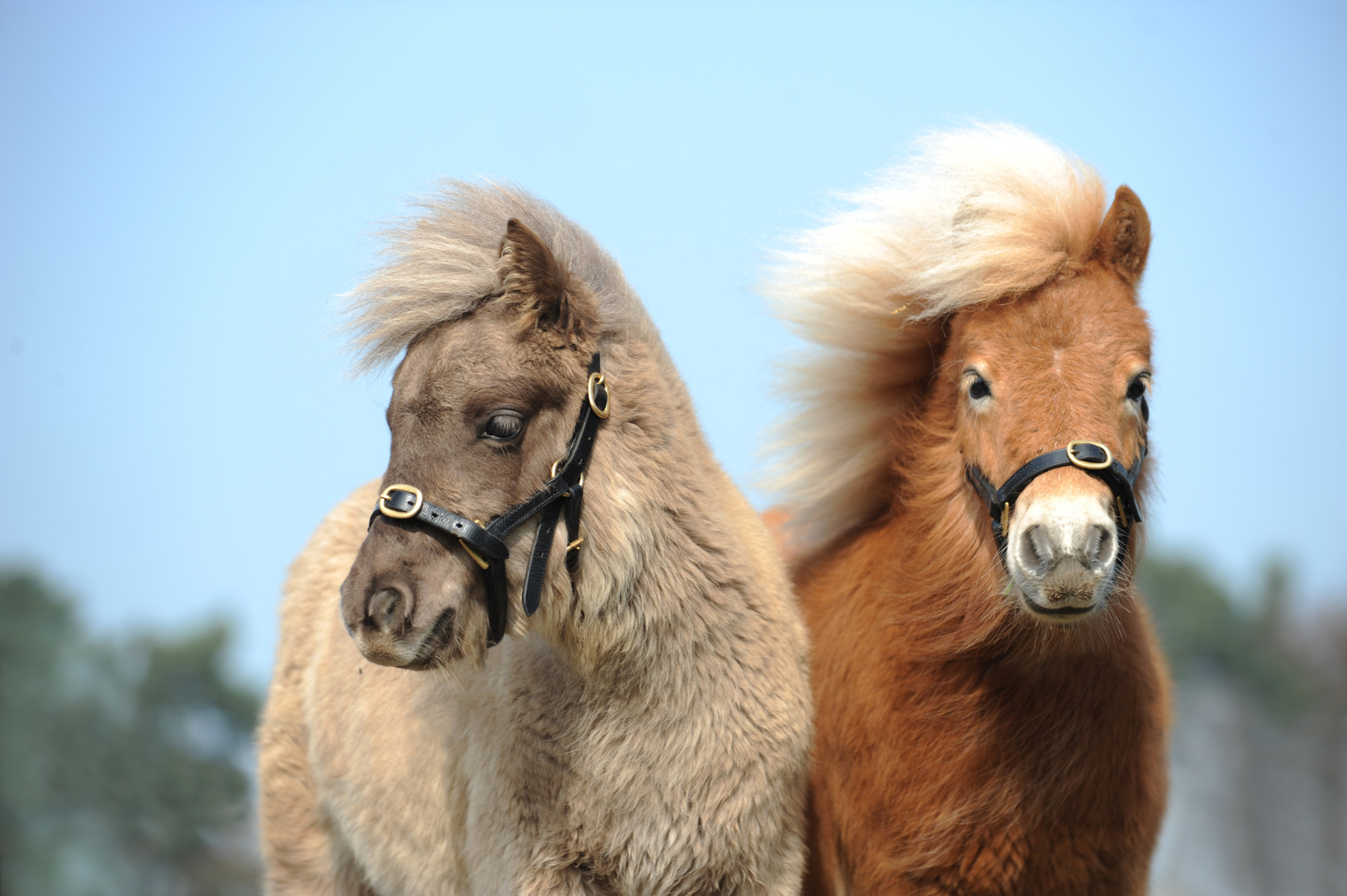
Keeping horses safe in hot weather
We've seen some extreme hot weather over the last few years. As a result, it's really important to know how to care for your horse in the summer sun.
Long, hot summer days will need a bit of planning to keep your horse safe and comfortable during the sunniest of seasons.
When is it too hot for horses to be ridden?
Research suggests that both temperature and humidity can contribute to uncomfortable heat for horses. It will depend on your horses age and condition, but you should be vigilant once temperatures reach 28 degrees celsius if your horses are being ridden or competing. Overweight and older horses may also be less able to keep themselves comfortably cool.
The dangers of hot weather for horses
Horses in work, ie those who are competing or being ridden, are more at risk. There can be dangerous consequences of hot weather such as heat stress, increased heart rate, sunburn, heat exhaustion, dehydration and heatstroke.
Top tips to keep horses cool in the summer
Shade for your horse
Shelter is incredibly important in all weathers, but it's particularly important to provide shade and shelter to protect horses from direct sunlight. This can be provided by shelters and trees, and shade should be accessible throughout the entire day.
You'll need to make sure there is adequate ventilation if you keep your horse stabled too.
Plenty of water
Horses can drink more than double their usual water intake (up to 60 litres) during hot weather. So a constant supply of clean, fresh water is essential to prevent dehydration in horses.
Tips for encouraging your horse to drink more
- Make sure you check and change water regularly to keep it fresh and enticing
- If your horse is turned out, make sure there are a few different water sources
- Try introducing some horse-friendly flavourings like apple juice or mint for a refreshing treat to see if you're horse enjoys this
- Freeze a small amount of fruit and vegetables in water to make an enjoyable ice lick
Note
If you're relying on a natural water stream, make sure you monitor it to check it has not dried out and offer other sources of water too.
Stabling in hot weather
If your horse is usually turned out during the day and stabled at night, consider swapping this round during hot weather. You might also want to consider ways to circulate more air within their stable, ensuring there is good ventilation.
Wooden stables especially can get very hot in the summer, whereas stone and brick buildings stay cooler and may offer some respite.
Sponging down your horse
Hosing or sponging down is important after exercise as it helps cool their body temperature down. But even if they have not been working, a sponge or fine spray of water (so long as this does not frighten your horse) is a good way to keep your horse comfortable during very hot weather.
Salt lick
A salt lick will help replace vital nutrients that horses lose easily through sweating.
Flies
Flies can be a real nightmare for horses and ponies. Long manes and tails are a natural fly defence, but can make your horse very hot and might not offer the protection your horse needs.
Fly prevention
There are some important steps you can take to help minimise flies. Use a good quality fly repellent and ensure that horse droppings are removed frequently from paddocks and stables, so that flies are not attracted to the area. Also keep the muck heap as far away as possible from where your horses stay.
Tip
Horses will also stand together and swish their tails to prevent flies - make sure they're used to each other.
Fly protection
There are several options for additional protection, especially if your horse is sensitive to flies, including:
- fly sheets and fly rugs – these can be light-weight, fine-mesh, and some help reflect the sun's rays
- fly fringes
- fly masks
- nose nets
If your horse has not worn these before, introduce them gradually, and remember to watch out for rubbing.
Note
Nose nets may help with headshaking. However, evidence shows headshaking in horses can also be due to pain (sometimes called trigeminal-mediated headshaking). Speak to your vet if you're concerned about your horse shaking their head.
Sweet itch
Stay one step ahead if your horse suffers with sweet itch – an allergic reaction caused by mosquito and midge bites. Consider bringing your horse in at dawn and dusk and putting a sweet itch rug on them when you turn them out. You should also keep your horse away from waterways. Ask your vet about suitable topical treatments for the affected areas.
Sun cream
A suitable high factor horse sunblock cream will help protect exposed, unpigmented, white and pink areas of the skin, like the muzzle. Apply to your horse daily or as directed on the pack to prevent sunburn.
Clipping your horse
You might consider clipping your horse if they have a thick coat or you exercise them in hot weather. This will help keep them stay comfortable and they'll sweat less which might help avoid dehydration.
Nose net
These can be really handy if your horse is irritated by pollen. Introduce your horse to the net gradually if they are not used to it.
Farrier appointment and hoof care
Horses’ feet can dry out in warmer weather so keep them well hydrated – your farrier can advise which products to use.
Riding with your horse in hot weather
Keep ride times short and try to ride during the early mornings or late evenings, avoiding the hottest part of the day. Remember that humid weather will also pose more of a risk for horses as it reduces a horse's ability to cool down by sweating.
After riding, make sure your horse is cooled down properly. You can then remove their tack, hose or sponge them off with plenty of water and walk them slowly to help cool them down or turn them out.
Competing horses may also need electrolyte supplements in their feed or drinking water. This will help make sure they replenish important salts and minerals they lose through sweating.
Important
In very hot or humid weather or during heatwaves, even morning and evening temperatures may be too warm to ride. If you're planning to compete, check if events have been cancelled before you travel and consider whether competing and travelling with your horse in hot weather is fair on them.
Transporting your horse in hot weather
If you need to transport your horse, try to leave as early as possible in the morning or late in the evening, and avoid peak times so you and your horse do not get stuck in traffic. Keep windows open so that there's a good air flow through your horsebox or trailer and travel with plenty of water. We do not recommend travelling in heat above 30 degrees celsius.
Dehydration in horses
Keep an eye out for the following signs, especially if you ride or compete with your horse. Common signs and symptoms of dehydration in horses include:
- darker than normal urine or urinating less often
- skin that is slow to return to normal after being pinched
- dry or fewer than normal horse droppings
- tiredness, lethargy and dull eyes
- dry skin and mouth with thick saliva or gums that are darker in colour than normal
Heatstroke in horses
Heatstroke is more common in horses that are overweight, being ridden or being competed, and can be very dangerous. Cooling down your horse properly after exercise and sponging them down will help prevent heatstroke, but think carefully about whether you need to work your horse in very hot temperatures.
Some common signs and symptoms of heatstroke in horses include:
- lots of sweating
- fast, shallow breathing or panting
- flared nostrils
- reduced appetite and thirst
- an increased temperature
- muscle spasms
- out of character behaviour, tiredness or lethargy
- aggressive or bullish behaviour
Important
If you're worried about your horse move them to the shade, give them some fresh, clean water and contact your vet immediately. You should pour plenty of cold water over them to cool them down.
Page details
Reviewed
• 23 June 2023
Next review
• 22 June 2026






